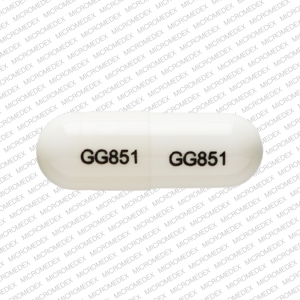Ampicillin and Alcohol/Food Interactions
There are 2 alcohol/food/lifestyle interactions with ampicillin.
Ampicillin Food
Moderate Food Interaction
You may experience reduced absorption of ampicillin in the presence of food. The effectiveness of the antibiotic may be reduced. Ampicillin should be administered one hour before or two hours after meals. This will make it easier for your body to absorb the medication. Penicillin V and amoxicillin are not affected by food and may be given without regard to meals.
Ampicillin High Blood Pressure (Hypertension)
Moderate Potential Hazard, High plausibility
ampicillin - sodium
Parenteral ampicillin sodium contains approximately 67 to 71 mg (2.9 to 3.1 mEq) of sodium per each gram of ampicillin activity. The combination, ampicillin-sulbactam, contains approximately 115 mg (5 mEq) of sodium per 1.5 gram of total drug. The sodium content should be considered when these products are used in patients with conditions that may require sodium restriction, such as congestive heart failure, hypertension, and fluid retention.
References
- (2002) "Product Information. Omnipen (ampicillin)." Wyeth-Ayerst Laboratories
- (2002) "Product Information. Unasyn (ampicillin-sulbactam)." Roerig Division
Ampicillin drug interactions
There are 53 drug interactions with ampicillin.
Ampicillin disease interactions
There are 5 disease interactions with ampicillin which include:
More about ampicillin
- ampicillin consumer information
- Check interactions
- Compare alternatives
- Pricing & coupons
- Reviews (5)
- Drug images
- Side effects
- Dosage information
- During pregnancy
- Drug class: aminopenicillins
- Breastfeeding
Related treatment guides
Drug Interaction Classification
| Highly clinically significant. Avoid combinations; the risk of the interaction outweighs the benefit. | |
| Moderately clinically significant. Usually avoid combinations; use it only under special circumstances. | |
| Minimally clinically significant. Minimize risk; assess risk and consider an alternative drug, take steps to circumvent the interaction risk and/or institute a monitoring plan. | |
| No interaction information available. |
Further information
Always consult your healthcare provider to ensure the information displayed on this page applies to your personal circumstances.


